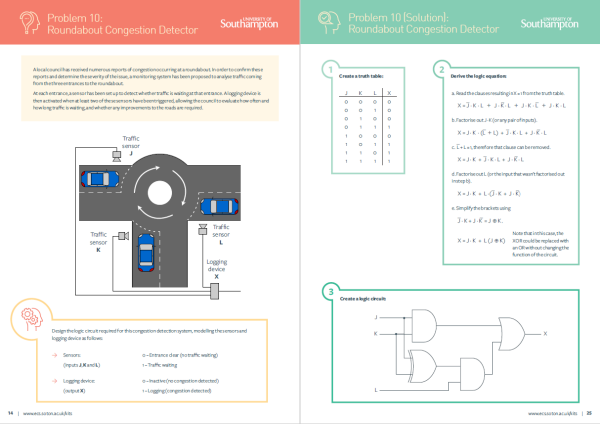High-performing students from the University of Southampton have won prizes in two national competitions from the UK Electronics Skills Foundation (UKESF) at the TechWorks Awards.
Third year MEng Electronic Engineering student Hugo McNally was named joint UKESF Scholar of the Year in last week’s ceremony, becoming the sixth Southampton student to win the honour in the past nine years.
MSc Artificial Intelligence student Yanislav Donchev claimed first prize in an inaugural Embedded Systems Competition with an innovative design for sensor-fitted drumsticks and foot pedals that he created during his Electrical and Electronic Engineering degree's individual project. Fellow Southampton student Torran Green took second place with his design for an interactive smart poster using dispenser-printed electronics.
The students were honoured at London's Royal Garden Hotel in a Gala Dinner and Awards hosted by TechWorks, the UK's deep tech hub.
Hugo was presented the Scholar of the Year prize, sponsored by IC Resources, for his work at industry partner ON Semiconductors. He will share the title with Mary Bennett from the University of Surrey.
"I am good friends with many UKESF scholars and hold these friends in the highest regard; they are all intelligent and very driven," Hugo said. "It is an honour to be highlighted as one of the top performers among this crowd.
"My experience on the scheme has been amazing. I have worked at an exciting company with many great people; I have built a network of many other high-achieving and interesting students; and it has pushed me to partake in outreach activities which I have come to really enjoy."
Professor Geoff Merrett, ECS Director of Outreach and Recruitment, said: "Many congratulations to Hugo for this excellent result, acknowledging the contributions that he has made to his sponsoring company and in promoting the electronics sector. Hugo is Southampton's 10th finalist in the nine years that the Scholar of the Year award has been in existence, and this is a continued testament to our consistently high-quality students, and the excellent and longstanding relationship that we have with the UKESF."
The Embedded Systems Competition, supported by UltraSoC, highlights excellence in students completing a major individual project on embedded systems.
Prize winner Yanislav Donchev spent half a year developing his Drumless concept, which embeds MEMS motion sensors interfaced with a microcontroller that connect via Bluetooth and play through a smartphone.
"My project allows drummers to play everywhere and whenever they want," he explained. "They can pack the two drumsticks and the foot sensors in their backpack, their mobile phone in their pocket and that's all they need to play drums.
"The biggest impact this project had on me was the introduction to deep learning. Before this, deep learning was a black box to me. Now it is an area that I am getting better at every day and my aspirations are to become a research scientist in that field."
Fourth year MEng Electronic Engineering student Torran Green showcased research being advanced in the Smart Electronic Materials and Systems research group through his individual project.
His smart poster incorporated printed touchpads, an audio speaker, a proximity sensor, an electroluminescent Lamp and a Near Field Communication (NFC) antenna, all controlled centrally by a microcontroller.
"The project used a variety of different E-Inks, each with specific electrical properties,” he said. “By layering and printing these inks in a particular way different electronic devices can be printed. This project represented the first time that so many different dispenser-printed devices had been successfully incorporated into one system; now that this has been achieved it is easier to envision the potential applications of dispenser printing in the future."
